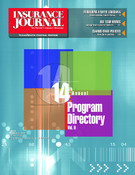The Louisiana Legislature passed a measure creating a mandatory, uniform statewide building code that proponents believe will not only help build a more structurally stable Loui-siana but will help keep insurance rates from skyrocketing. At press time Gov. Kathleen Blanco had not yet signed Senate Bill 44 into law, but the governor was a strong backer of the legislation, along with Insu-rance Commis-sioner Robert Wooley and various insurance groups.
The bill establishes a mandate for statewide uniform building codes for all residential and commercial properties. It also creates a 19-member Louisiana State Uniform Construction Code Council, which will educate and certify the building officials whose job it is to enforce the standards. Building standards published by the International Code will serve as the foundation for Louisiana’s statewide codes.
According to information posted on the governor’s Web site at www.gov.state.la.us, the Inter-national Building Code and International Residential Code have been adopted in Florida, Georgia, Texas, South Carolina, North Carolina and Virginia. The public will have the opportunity to comment on updates and amendments to the code.
The bill passed by a wide margin in the Senate, but was subject to unsuccessful attempts in the House to weaken it. Opponents to a statewide building code fear it will raise the cost of constructing homes and buildings and will be a burden to local governments when it comes to enforcement.
Insurer groups, like the Property Casualty Insurers Association of America, applauded its passage.
“We are very encouraged by the priority and steadfast attention Louisiana legislators have given to creating and passing this necessary and long-overdue legislation,” said Greg LaCost, assistant vice president, regional manager and counsel for PCI.
As a part of the coalition of “Constructing a Stronger Louisiana,” PCI worked with state lawmakers in crafting the building codes legislation. PCI said it is also urging the implementation and enforcement of a federal building codes program.
In a statement released by the Department of Insurance, Commissioner Wooley expressed his support for the bill.
“Now is an important time for us to send a strong message to the insurance industry and to Washington that we are serious about making the changes necessary to help our state move forward. One significant step includes the adoption of a statewide uniform building code in Louisiana.
“A statewide uniform building code is needed now more than ever to protect our citizens. In Florida, building codes were implemented after Hurricane Andrew in 1992. I visited a Punta Gorda, Florida neighborhood eight months after Hurricane Charley and saw where homes built pre-Andrew, pre-uniform building codes, once stood but were destroyed. Across the street, homes built to code, post-Andrew, stood with minimal damage, with no citizens displaced,” Wooley said.
“One important part of the equation that has not been included in the public debate is the potential cost savings building codes can have on insurance rates statewide,” he continued. “Just as we see with fire ratings, citizens in a municipality with a good fire rating will see lower homeowners insurance rates than citizens in communities with a low, or worse rating. You can apply that principle to a statewide uniform building code and better code enforcement.”
The new code applies to buildings rebuilt in the wake of Hurricanes Katrina and Rita, and to all buildings built or rebuilt starting in 2007. According to the American Insurance Association, which supported the measure, enforcement will begin in the 11 parishes hit hardest by the recent hurricanes within 30-90 days after the governor signs the bill.
“The new code has tremendous potential for saving lives. It will also help reduce catastrophic losses as well as more routine losses.” said John Marlow, AIA assistant VP, Southwest Region.
Topics Legislation Florida Louisiana Hurricane
Was this article valuable?
Here are more articles you may enjoy.


 State Farm Adjuster’s Opinion Does Not Override Policy Exclusion in MS Sewage Backup
State Farm Adjuster’s Opinion Does Not Override Policy Exclusion in MS Sewage Backup  CFC Owners Said to Tap Banks for Sale, IPO of £5 Billion Insurer
CFC Owners Said to Tap Banks for Sale, IPO of £5 Billion Insurer  AIG’s Zaffino: Outcomes From AI Use Went From ‘Aspirational’ to ‘Beyond Expectations’
AIG’s Zaffino: Outcomes From AI Use Went From ‘Aspirational’ to ‘Beyond Expectations’  Experian Launches Insurance Marketplace App on ChatGPT
Experian Launches Insurance Marketplace App on ChatGPT 


